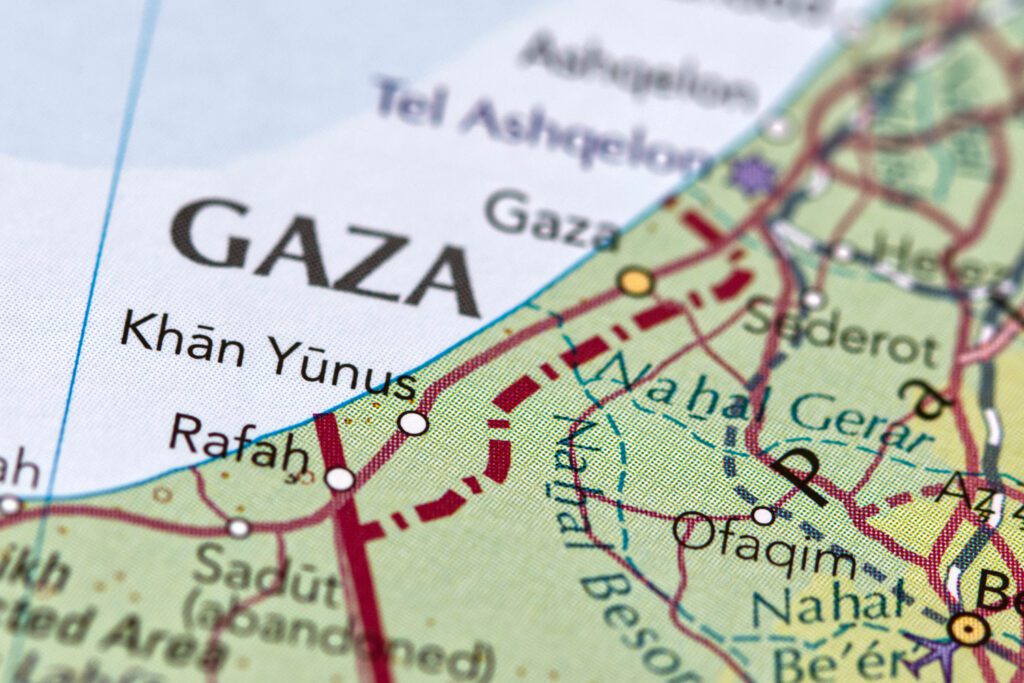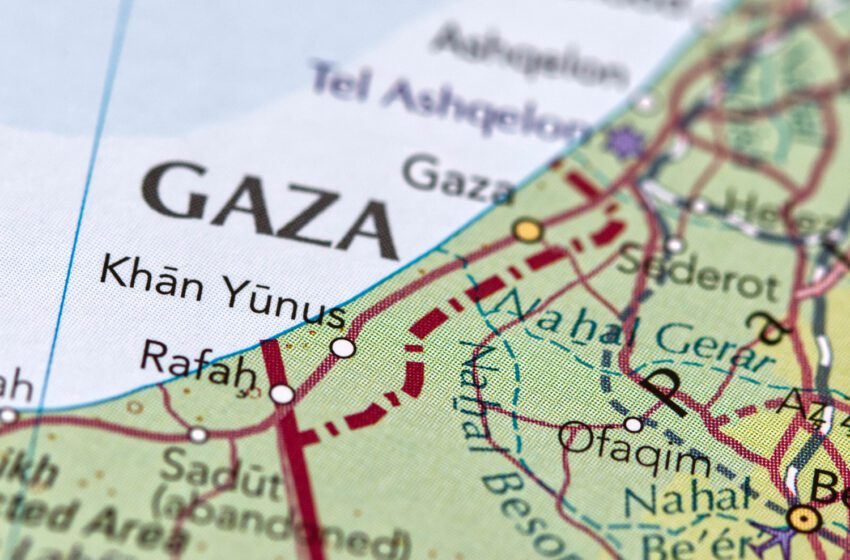
With normal supplies cut off due to the Hamas-Israel conflict, cigarettes are selling for $30 per stick in Gaza.
TR Staff Report
Israel’s market has seen an upswing in cigarette consumption as war-related stress and anxiety take a toll on the population, especially on soldiers and their families. In the meantime, on the other side of the barricades, traders are selling cigarettes at some of the world’s highest prices, according to observers.
Import dynamics and tax receipts are two key indicators describing the state of play in the Israeli cigarette market.
In 2022, tobacco companies paid NIS7.5 billion ($2 billion) to the national treasury, according to the Tax Authority. Import volume was consistent throughout most of 2023, until October, when it jumped by 21.5 percent, the official data indicated.
A senior official in the customs brokerage industry, speaking to a local publication Finance Walla, suggested that the war could potentially contribute an additional NIS500 million to the national budget, thanks to the increased cigarette sales.
Tobacco consumption in Israel has long been the subject of increased attention and strong concerns among government officials and anti-smoking organizations.
According to a 2021 report by the Taub Center for Social Policy, nearly 20 percent of Israeli adults consume tobacco, which is higher than the Organisation for Economic Co-operation and Development average. A quarter of men and 15 percent of women smoke, with rates higher among Arabs than among Jews.
The Israeli Health Ministry estimated that tobacco consumption in the country declined between 1998 and 2019. The Covid-19 pandemic triggered a slight increase in cigarette consumption, though the impact seems to be incomparable to that of the Gaza war.
Hedva Elmackias, deputy director of finance and marketing operations at the Taub Center, told Tobacco Reporter that no up-to-date information was available to judge how the Gaza war impacted the tobacco market in Israel.
However, the Gaza war has brought tobacco sales in the country to heights not seen for a long time. The link is obvious: People smoke more to combat stress and anxiety.
“The situation is obviously incredibly distressing,” Yahel Silberberg Vulej, a spokesman for Philip Morris International, told Tobacco Reporter, declining to discuss what impact the war produced on the company’s business in the country. “Throughout this situation, our priority has been to look after our people, ensuring our colleagues and their families are safe,” he added only.
Nevertheless, the impact of the war on Israeli tobacco sales is undeniable.
“A great deal of money has entered our business since the beginning of the war, millions of additional shekels,” What Alon, the owner of a cigarettes and smoking products distributor, told Finance Walla.
In physical terms, cigarette sales in Israel jumped to nearly 400 million packs against 352 million packs in the previous year, the official statistical data indicated. This is equal to 8 billion cigarettes.
While the surge in tobacco industry taxes may seem beneficial in the short term, economists caution that the long-term implications of the current trend in the Israeli tobacco market demand urgent attention and action from the authorities and social organizations.
The Abrahamson Network of addiction treatment centers allows every regular soldier to receive free smoking cessation treatments at any of its eight locations in Israel.
“This is a volunteer program in which all 50 of the company’s employees, therapists, service and support staff, nutrition consultants and Abrahamson’s operations and logistics team participate,” said Ehud Abrahamson, the company chief.
The World’s Most Expensive Cigarettes
Meanwhile, in Gaza, cigarettes are selling for record prices.
According to the Progressive Survey of Chronic Diseases conducted by the Palestinian Ministry of Health in 2022, the percentage of smokers in Palestine is the highest in the Middle East, reaching about 34 percent.
The survey results indicate that 55.1 percent of males and 12.1 percent of females are smokers, and more than a third of smokers are young people aged between 18 and 29.
While reliable data on the impact of the war on tobacco consumption in Palestine is scarce, local resident Ayad Thabet told Al Akhbar that the percentage of smokers has surged since the conflict began, painting a stark picture of the situation.
This happened even though a single cigarette can sell for $30 in the Gaza market, as estimated by the local press.
Currently, the Gaza tobacco market is primarily composed of poor-quality cigarettes of unknown origin smuggled from Egypt. Cigarettes of international brands can be rarely met here since the conflict started. The market is also highly speculative.
A local cigarette seller told Al Akhbar: “A few days before Hamas agreed to the Egyptian truce proposal, the price of a cigarette was NIS30 [$8], and minutes after Hamas agreed, its price dropped to NIS20, and after Israel and Netanyahu in their stubbornness rejected the truce, its price jumped to NIS100.”
Speaking about cigarette consumption, however, he argued that it went down dramatically due to a lack of supply and because people had no money to spare. He estimated that before the war, he used to sell 40 packs of cigarettes per day, but now he is lucky to sell two packs.
Cigarettes have become like a new gold in Gaza, a U.N. official described the present market situation to The Wall Street Journal.
Juliette Tourwa, director of communications for the United Nations Relief and Works Agency, told Tobacco Reporter that the organization doesn’t have reliable information about the state of the tobacco market in the Gaza Strip.
Cigarettes are smuggled to the Gaza Strip primarily from Egypt, sometimes even in the humanitarian aid trucks. Some reports indicate that the flow of contraband cigarettes has somewhat narrowed since the Israeli army attacked Rafah in early May.
Reselling cigarettes has become an extremely perilous profession in the Gaza Strip, as sellers are frequently targeted by desperate consumers.
Khaled Omar, another local resident, told Al Akhbar that when it comes to the tobacco market, “Gaza is like another planet” as the price per pack of cigarettes of international brands can reach $600 per pack. He assumes there is no place in the world where the price would be that high.
Omar also blames unscrupulous sellers for the market manipulation, assuming that they “are waging war against Palestinians, just like the Israel Army.”
Revival of the Illegal Segment
Not only did Gaza experience a jump in cigarette smuggling amid the ongoing war. The surge in tobacco sales in Israel, coupled with the general war-related turbulence, reportedly triggered a rise in cigarette smuggling to the country too.
In 2023, the Israeli Customs Service seized 36 containers filled with contraband cigarettes against only 17 in the previous year. Law enforcement agencies also warned at the airports and Israel’s land borders with Jordan and Egypt that the smuggling of cigarettes has become particularly frequent. In addition, thousands of packs of illegal cigarettes are regularly being seized at the seaports.
Smuggling cigarettes has become increasingly profitable among criminals in recent years due to the growing price differences between cigarettes in Israel, which are taxed at a high rate, and their prices in the neighboring countries, not only Jordan and Egypt but also European countries.
In 2024, the tobacco market is braced for another tax hike. The sales tax on cigarettes will rise from 270 percent and a price of NIS444.03 per thousand cigarettes to NIS850.62 per thousand cigarettes, to 270 percent and NIS 524.50 per thousand cigarettes, up to not less than NIS930 per thousand cigarettes.
The purchase tax on processed tobacco is also set to jump from 270 percent and NIS634.34 per kilogram to NIS1,215.18 per kilogram, to 270 percent and NIS749.29 per kilogram to NIS1,328.57 per kilogram.
In addition, the sales tax will be increased on other tobacco products, including tobacco-heating devices that use tobacco units and tobacco-heating devices that use tobacco. A tax of NIS113.39 per kilogram will be imposed on packages of loose tobacco for cigarettes.
At the end of 2023, cigarettes in Israel cost 80 percent to 100 percent more than in the neighboring Middle Eastern countries. The new tax increase should make the gap even wider.
A senior official at the Tax Authority told a local news outlet, Ynet, that law enforcement agencies are now bracing for a surge in the number of smuggling attempts, citing the existing price situation as the reason.



